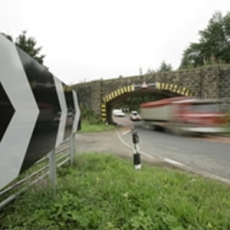Issued on behalf of Nestrans by The BIG Partnership. With thanks to Dave Macdermid.
Nestrans, the statutory regional transport partnership for the North-east of Scotland, has written to the Department of Transport (DfT) as part of the UK Government’s aviation consultation and in response to questions posed by the DfT in its scoping document looking to develop a sustainable framework for UK aviation.
Chair of Nestrans Ian Yuill believes any future air travel policy implemented by the European Union, which is currently considering changes to the landing slot rules, has the potential to make a hugely significant impact, both positive and negative.
“In what was a fairly detailed response, we have highlighted the impact aviation has on our economy and the impact of our economy in the north east on the UK economy as well as the different impacts of aviation for the peripheral regions of the UK compared to the more central areas where surface transport is a viable option.
“While we welcome the proposed introduction of High Speed Rail to central Scotland, it is not, and never will be, viable to extend it to the North east and therefore it is absolutely crucial that existing air links between ourselves and Heathrow are protected. As a region, our economy is dependent on international travel and the logical hub to achieve this is Heathrow.
“Within our submission, we have included many key statistics including the fact the percentage of Scotland’s air traffic through Aberdeen is 13.3% for a population catchment of 8.9% while the proportion of business travellers is 56% compared to 30% for Edinburgh and Glasgow.
“The link between Aberdeen Airport and Heathrow is particularly important in several ways, including access to other parts of organisations, particularly headquarters functions, for inward investors; access to markets for indigenous companies and for inward investors seeking to use a region as a base of operations within a world area; access to suppliers of goods and services from around the world and access to knowledge partners and complementary businesses.
“The recent news that BA is set to purchase BMI, and the likely resultant consolidation of services only highlights the need to be able to protect the current BA service of six rotations each weekday between Aberdeen and Heathrow and we are sincerely hoping this is given due and proper consideration by the Government as part of this consultation which will impact future air policy.”
The EU is currently considering the European regulations separately from the UK policy consultation and any UK policy developed will have to suit any amended EU rule.

